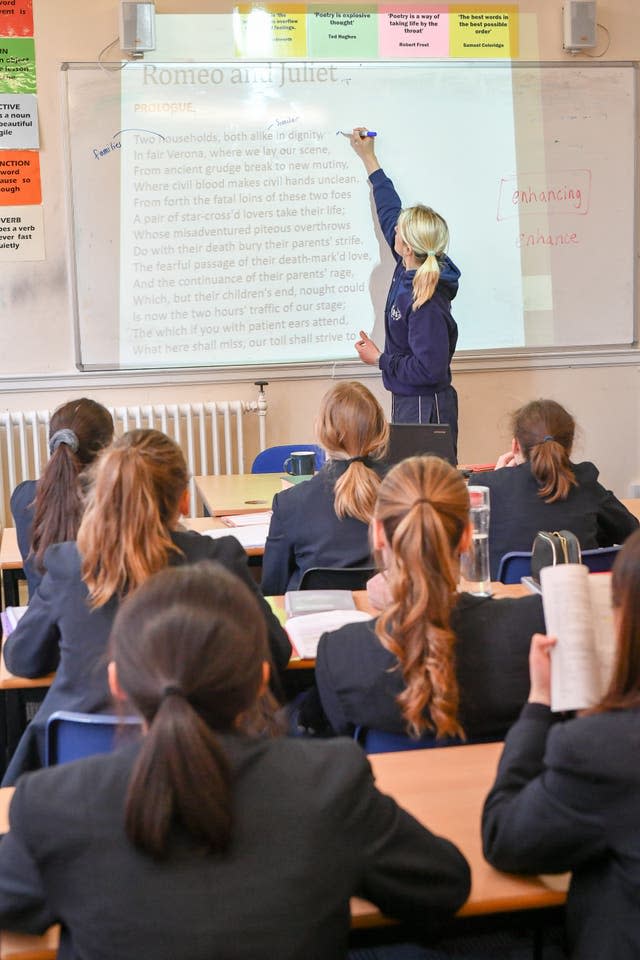Schools using non-specialist teachers amid recruitment struggle
Schools struggling with teacher recruitment issues are having to use non-specialists for maths, physics and language lessons, a report has found.
The National Foundation for Educational Research (NFER) said the use of non-specialist teachers in schools struggling with recruitment could have a negative impact on learning for pupils.
The research, funded by the Nuffield Foundation, found that the use of non-specialists was more prevalent in schools facing teacher supply challenges.

The findings, from a survey of senior leaders with responsibility for staffing in schools in England looking in the 2019/20 and 2020/21 academic years, found that in secondary schools where teacher recruitment was most difficult, 62% reported at least some maths lessons being taught by non-specialists.
For physics, the figure was 55% and for modern foreign languages it was 26%.
Those figures compared with 28%, 29% and 14% for the respective subjects in schools that reported finding teacher recruitment the least difficult, the NFER said.
The NFER said schools across all types of geographical area used non-specialist teachers to a similar extent for maths, physics and languages.
The organisation’s school workforce lead and report co-author, Jack Worth, urged the Government to “place a renewed focus on improving teacher recruitment and retention”.
He said: “The growing recruitment and retention challenges in England are likely to be having negative impacts on pupils’ education and learning. Under-recruitment to initial teacher training leads to school leaders facing teacher recruitment shortages, which they can mitigate to some extent by, for example, deploying non-specialist teachers or asking school leaders to take on more teaching.
“But these measures make school improvement harder right across the system.
“We call on the Government to place a renewed focus on improving teacher recruitment and retention, to ensure a sufficient supply of teachers, and in turn, support the improvement of pupil outcomes in schools throughout the education system.”
Nuffield Foundation director of education, Josh Hillman, said the report’s findings were “of great concern” in highlighting how recruitment challenges are leading to an “increased use of non-specialist teachers, particularly in schools struggling to hire teaching staff”.
A Department for Education spokesperson said: “While the number of teachers working in state-funded schools remains high, we recognise there is more to do to continue to attract and keep talented individuals in our classrooms.
“That’s why we have put in place a range of measures to improve teacher recruitment, retention and quality including the highest pay award in a generation for all teachers, as well as bursaries worth £27,000 tax-free and scholarships worth £29,000 tax-free, to encourage talented trainees in key subjects such as chemistry, computing, mathematics and physics.”
Kevin Courtney, joint general secretary of the National Education Union, said the Government must “act quickly to restore teaching as an attractive graduate profession” having “failed to recruit and retain sufficient teachers into the profession for many years now”.
He said: “Pay, professional agency, and workload problems have now built to crisis point. Parents rightly expect their child to be taught by a qualified subject teacher, but, under constant financial pressure, schools are struggling to match need to specialist staff.
“For the sake of educational quality and students’ life chances, the NEU is adamant that a fully-funded, above inflation pay rise for all teachers is a critical first step.”
The NFER said it will launch a data dashboard in December showing the nature of the “recruitment and retention challenges, and their implications for pupils and schools in terms of teacher shortages, across different dimensions, including geography, subject and school types”.


